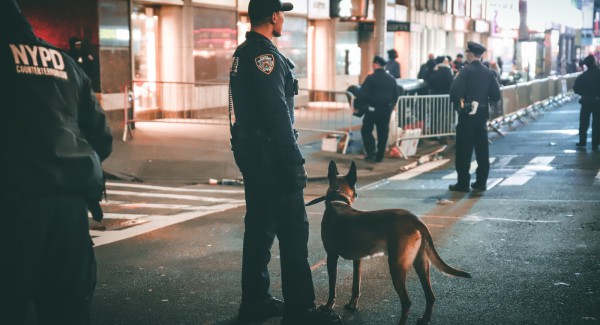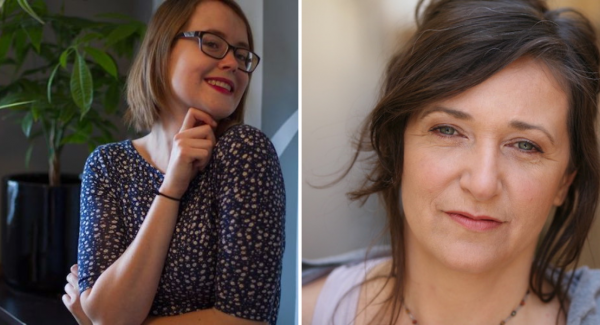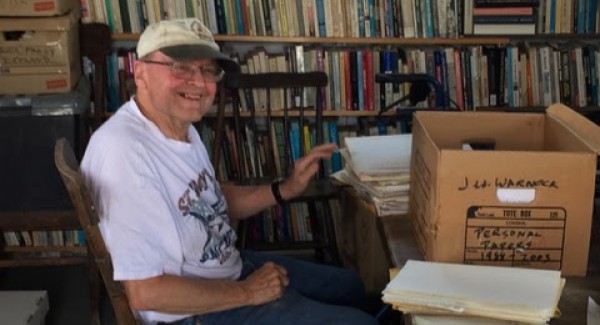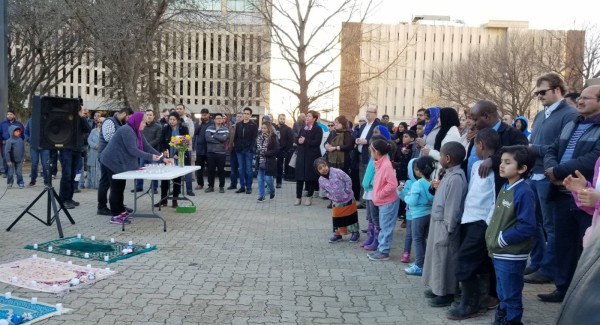Finding asylum in Swift Current
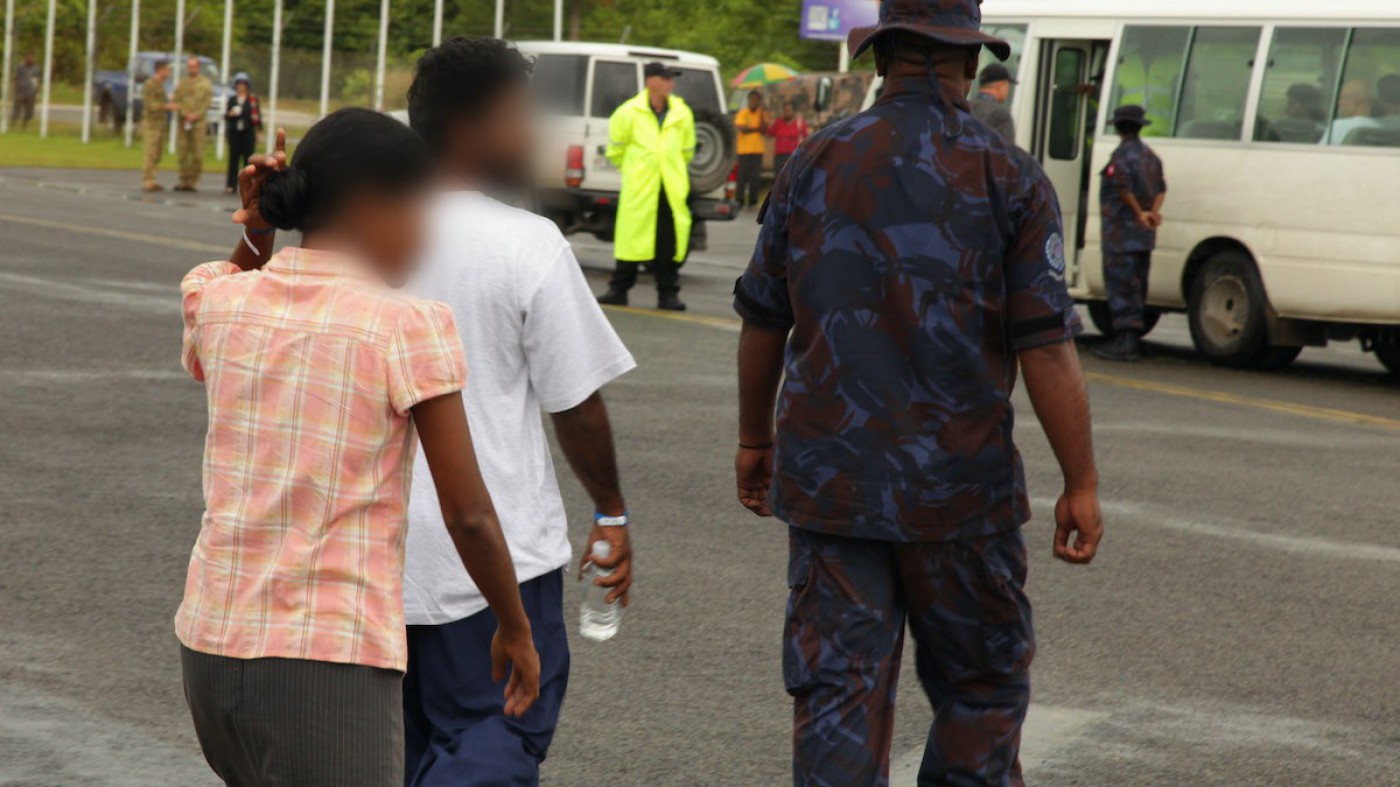
Refugee families from Sri Lanka and Iran arrive at the regional processing centre on Manus Island after its reopening in 2012. From there, refugees were transferred to the Nauru and Manus Island detention centres. DIAC images, via Wikimedia Commons.
In 2017, after years of international outcry and deaths by suicide, the detention centre on Manus Island in Papua New Guinea was shut down. At its peak it held 1,300 asylum seekers, all of them men who had attempted to reach Australia by boat, primarily from Afghanistan, Iraq, and Sri Lanka.
They’d been detained after Australia’s Labour government implemented a policy in 2013 that barred any migrant who tried to reach Australia in this manner from applying for asylum in the country. Since the detention centre’s 2017 closure, hundreds of those detained have been shuffled around. Some have been resettled in the U.S., while others remain in some form of detention or unsafe living situation.
These groups don’t know yet when the men will arrive, but they do know they’ll need places to live, furniture for their homes, Canadian bank accounts, and friends in town.
Now, thanks to ordinary people and Canada’s Private Sponsorship of Refugees (PSR) program, some of these men are getting the chance to resettle in Canada. Five will arrive in Swift Current, Saskatchewan, where sponsorship groups of private citizens are preparing to welcome them. These groups don’t know yet when the men will arrive, but they do know they’ll need places to live, furniture for their homes, Canadian bank accounts, and friends in town. They also know they’ve been through the harrowing ordeal of being imprisoned arbitrarily for years.
Imprisoned for seeking safety
Men who were held in detention on Manus Island aren’t criminals. Having signed the United Nations’ Refugee Convention, Australia acknowledges that people have the right to seek asylum.
You wouldn’t know that, however, from the circumstances in which they were held. According to Amnesty International, the Manus Island Regional Processing Centre was “a combination of a prison and a military camp.” It was designated for single male asylum seekers, while women and families were held separately on the island of Nauru. They shared overcrowded, unsanitary quarters that failed to protect them from the elements and lacked basic hygiene items, and prisoners were referred to by codes rather than their names. The United Nations High Commissioner for Refugees (UNHCR) says they suffered the highest levels of depression, anxiety, and post-traumatic stress disorder of any surveyed population. Held against their will with no end in sight, these conditions exacerbated the trauma that had caused them to flee their own countries. Self-harm and suicide attempts occurred frequently. Men staged hunger strikes and sewed their lips together in protest. At least eight men died there, most of them by suicide, murder by staff, or lack of access to proper medical care.
The United Nations High Commissioner for Refugees (UNHCR) says they suffered the highest levels of depression, anxiety, and post-traumatic stress disorder of any surveyed population.
In 2016, Papua New Guinea declared the detention centre illegal and the Australian government shut it down the following year, but the men imprisoned there remained in limbo. Many went to the capital of Port Moresby and elsewhere on Papua New Guinea, but they received little support and lived in unsafe conditions. Some who needed medical treatment were taken to Australia under a medevac law, but they were kept in detention on the mainland. Until they were identified by the non-profit Ads-Up for resettlement in Canada, their futures were uncertain.
Making use of a unique system
The PSR system that will bring five of these men to Swift Current isn’t new. Introduced in the 1970s as a response to people fleeing wars in Southeast Asia, it allows people to privately sponsor and support refugees. This shifted some of the costs of resettlement away from the state and onto private citizens. For decades, the system was unique in the world. But when millions of Syrians began to seek refuge from that country’s civil war in 2015, other places, like the United Kingdom and New Zealand, started to implement similar systems.
How does it work? One pathway involves the federal government signing agreements with organizations (often church groups and non-profits) to designate them as sponsorship agreement holders (SAHs). These SAHs can then sponsor refugees or work with groups of people who want to be sponsors.
Introduced in the 1970s as a response to people fleeing wars in Southeast Asia, [the PSR system] allows people to privately sponsor and support refugees. This shifted some of the costs of resettlement away from the state and onto private citizens.
The job of a sponsorship group is to raise enough money to support the refugees they sponsor for one year. The Canadian government requires at least five people to raise $16,500 to sponsor a single refugee. The group then finds the refugee a place to live, furnishes their home, helps them access needed services like health care or English classes, and acts as their support system. They teach refugees how to navigate the new cultural (and physical) environment, start bank accounts, get ID cards, enrol in training, or find jobs. The refugees are dependent on their sponsorship group for this kind of help – only in rare cases will the federal government provide financial assistance.
With the number of global refugees rising as people are displaced by climate change and wars, a more comprehensive strategy for ensuring the rights and dignified resettlement of refugees is necessary. Organizations like the Migrant Rights Network focus not just on rights and protections for migrants in Canada, but also on creating global justice so people aren’t forced to migrate in the first place. Nevertheless, the PSR program has a profound impact on the lives of those who are sponsored.
An unexpected destination
Although Swift Current might not seem like a typical destination for refugee arrivals, it was there that Anika Henderson first wondered if Canada’s PSR program could help those Australia had detained. Henderson had lived in Melbourne, where she’d worked with asylum seekers. When she moved home to Saskatchewan, it was to take a job establishing the Southwest Newcomer Welcome Centre. Now she has her own immigration consulting company.
After looking into it, Henderson discovered a non-profit organization called Australian Diaspora Steps Up (Ads-Up). Started in 2019 by an Australian and an American who immigrated to Canada, Ads-Up Canada links Canadian sponsors with refugees who’ve been detained by Australia and raises the money groups need to support them. It does this by partnering with an SAH called MOSAIC, which holds a contract with the federal government to sponsor refugees. Ads-Up then provides training to the sponsorship groups and fills out and submits the government paperwork to get approval for the refugees’ resettlement. This removes some of the bureaucratic tasks from the sponsorship teams so they can focus on preparing for refugees to arrive.
Henderson held an information night at a café in Swift Current to get the word out about Ads-Up and refugee sponsorship. Over a dozen people turned up, and by the end of the evening some attendees had formed a sponsorship group. But then another group formed. And another. Now three groups are working to welcome five refugee men who endured years of detention on Manus Island.
"That’s been my experience here: once people are made aware of the situation, and then made aware of the fact that they can do something about it and made aware that there are the supports in place […] it hasn’t been a hard sell.”
“Sometimes the problems of the world are so huge and so overwhelming that I think it almost leaves people, I don’t know, like, frozen,” Henderson says. “But when people are presented with something really practical and tangible that they can do to make a difference, I think people are really inclined to grab hold of that and run with it. So that’s been my experience here: once people are made aware of the situation, and then made aware of the fact that they can do something about it and made aware that there are the supports in place […] it hasn’t been a hard sell.”
Founded by Dr. Laura Beth Bugg, a University of Toronto professor, and Dr. Juliet Donald, a clinical psychologist with Doctors Without Borders, Ads-Up Canada raises most of the money used for sponsorship from Australians who want to help.
“There’s so many good Australians who want to be part of this but can’t actually help us through sponsoring in Canada,” Bugg says. “So they’ve actually raised a significant amount of money – I think it’s close to $2 million now. When people [are] part of a sponsor team, they don’t actually have to raise money. We just need the caring hearts, not the open wallets.”
Though there are drawbacks for newcomers in smaller centres – for example, the lack of an existing community that shares their language and culture – rural resettlement does have advantages.
“I think when you live in urban centers, you might not fully grasp that community togetherness that can come living in a rural area,” says Donald, an Ads-Up Canada co-founder. “Sometimes people think rural areas would mean you would have access to less. But what I’m saying is people have access to more in so many ways. You’ve got people who are so committed, they clearly love living in this town […] there is this real effort to help this person become a new member of the community.”
The strength of small communities is also found in their tightly woven networks. One of the Swift Current sponsors works at the regional college, Henderson says, and can help connect the new residents with training and employers. Finding housing is much easier in a town where everyone knows everyone else. Smaller communities may also have higher vacancy rates and lower costs of living than larger centres. And though access to mental health services is typically limited in rural areas, remote access to professionals is becoming more common.
Bugg and Donald have noticed a trend of smaller communities becoming active in refugee sponsorship. They are impressed by the dedication of the Swift Current groups, but also by Dawson Creek, B.C., and Steinbach, Manitoba, which are also organizing sponsorship teams.
“We’re not coming and swooping in and saving somebody. We’re coming in at the very, very last part of their journey. When you think about everything that they’ve done and overcome and how brave – I don’t even have the words.”
Then there are Australian supporters. Groups like Rural Australians for Refugees have contributed funds for Canadian sponsorships. And Swift Current got its own personal Australian fundraising team when Isabella Hollewand, a teenager in Queensland, heard a radio interview with Bugg and decided to help. She reached out to Ads-Up and then to her church’s social justice committee. Ads-Up paired her committee with Swift Current – and they raised over $20,000 for its sponsorship teams.
Henderson has been in contact with the refugees who will eventually arrive in her community, getting to know them over WhatsApp. Though the process has been delayed by COVID-19, she expects they will arrive within the next year. She can’t wait to welcome them to Canada.
“It amazes me, when you think about the human beings that we’re now going to be so fortunate to meet and have friendships with, like the strength and resilience and all of the qualities as a human being that you have to have to survive what they’ve survived,” she says.
She says it’s important to note that she doesn’t see the sponsorship groups as saviours.
“We’re not coming and swooping in and saving somebody,” she says. “We’re coming in at the very, very last part of their journey. When you think about everything that they’ve done and overcome and how brave – I don’t even have the words.”
Canada has work to do
It’s no small irony that while Canada has opened its doors to these refugees who originally sought asylum in Australia, it has denied access to others. Canada also detains migrants, including children, many of whom have been stuck in detention for years. In 2018–2019, 9,861 migrants were held in detention in Canada. Over 12,000 people were deported in 2020, in the midst of the COVID-19 pandemic – more than any year since at least 2015. Thousands more had their asylum claims denied.
The Canadian government has prioritized what kinds of migrants and what kinds of border crossings are legitimate, just as the Australian government did when they denied the asylum claims of people arriving to that country by boat.
Canada’s Safe Third Country Agreement with the U.S. says that America is a safe country, and so asylum seekers attempting to cross the border into Canada can’t claim they’re fleeing for their safety. Asylum seekers fleeing the policies of the Trump administration avoided border crossings where they would be turned away and took dangerous alternate routes into the country to make an asylum claim. In 2016, a Ghanaian man lost his fingers and one toe to frostbite while attempting a border crossing in Manitoba, and in 2017, a 57-year-old woman died of hypothermia making a similar attempt. The Canadian government has prioritized what kinds of migrants and what kinds of border crossings are legitimate, just as the Australian government did when they denied the asylum claims of people arriving to that country by boat.
If you are interested in refugee sponsorship or contributing to Ads-Up Canada, visit www.ads-up.org/canada.

